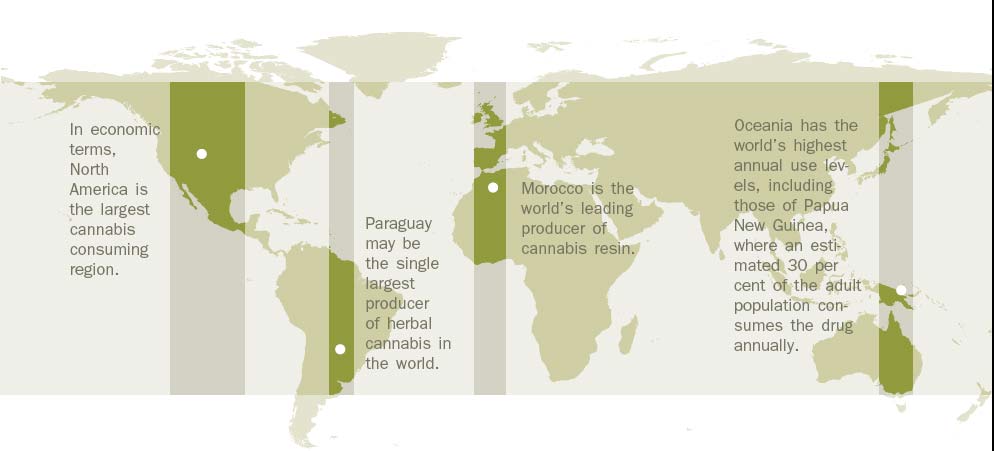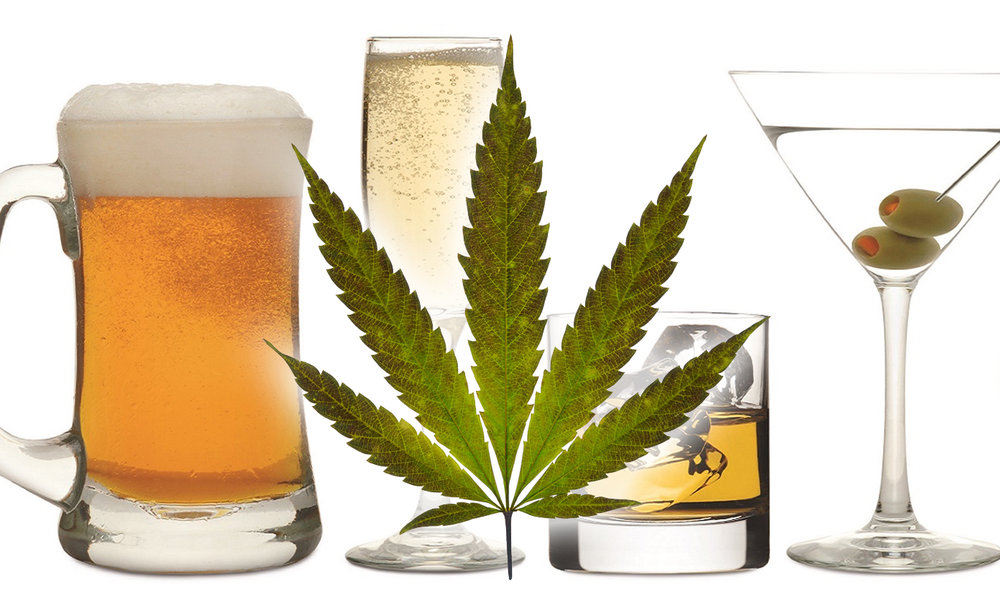Being part of the traditional Indian medicine, medical use of cannabis and cannabinoids is not a recent phenomenoni, Cannabis preparations such as cannabis tinctures (containing THC and other cannabinoids) were available in the nineteenth century in Europe, including Britain, and the United States to relieve pain and nausea The medical use of those cannabis preparations were, however, phased out in the twentieth century with the development of newer drugs that were based on clinical trials and which had standardized preparations and doses.
Since the 1990s, there has been a renewed interest in the potential medical use of cannabis, cannabis extracts and pharmaceutical products (containing THC and other cannabinoids) after the discovery of the endocannabinoid system in the human body. This suggested that cannabinoids could be used as an alternative to treat certain conditions for which there was strong to moderate evidence of effectiveness. These conditions include, among others, chronic pain, neurological disorders such as multiple sclerosis-related spasticity, and some types of epilepsies.
Some cannabinoids are also suggested for use as an antiemetic in the treatment of chemotherapy-induced nausea and vomiting in patients who fail to respond adequately to conventional antiemetic treatments.
The following cannabinoid-based pharmaceuticals, with marketing authorization, are currently approved for medical use in a number of countries:
Dronabinol. Oral capsules or an oral solution containing synthetic THC. Dronabinol is indicated for anorexia associated with weight loss in patients with AIDS and nausea and vomiting associated with cancer chemotherapy, usually after previous treatments have failed.
Nabilone. Oral capsules containing synthetic cannabinoid similar to THC, for use to treat nausea and vomiting associated with chemotherapy, usually after previous treatments have failed.
Nabiximols. A medicinal product containing approximately equal quantities of THC and CBD from two cannabis extracts. This product has been authorized for the treatment of muscle spasticity resulting from multiple sclerosis.
Epidiolex. A plant-derived CBD oral solution indicated for the treatment of seizures associated with Lennox-Gastaut syndrome or Dravet syndrome in patients 2 years of age or older.
Currently, 64 countries have provisions in their national legislation or guidelines allowing medical use of cannabinoid pharmaceutical preparations and/or cannabis herb for a range of medical conditions and with varying degrees of restrictions or permissiveness. Of those 64 countries, 34 countries allow the use of both pharmaceutical preparations and cannabis herb for medical conditions. In essence, all countries that allow medical use of cannabis herb also have provisions for medical use of cannabinoid pharmaceutical preparations.
Around 40 countries reported to INCB in 2020xi their estimates of production, consumption or stocks of cannabis for medical purposes.
Since 2011, an increasing number of countries have started to use cannabis and cannabis extracts for medical purposes, as well as for scientific research. Among those 40 reporting countries, the United Kingdom of Great Britain and Northern Ireland and Canada are the two main producers of cannabis for medical use, accounting for 71 per cent of the global production of 650 tons of medical cannabis in 2020. The United Kingdom is the main source of cannabis extracts and pharmaceutical preparations containing cannabis extracts.
The above report was published as medical uses of cannabis by United Nations
https://www.unodc.org/res/wdr2022/MS/WDR22_Booklet_3.pdf



